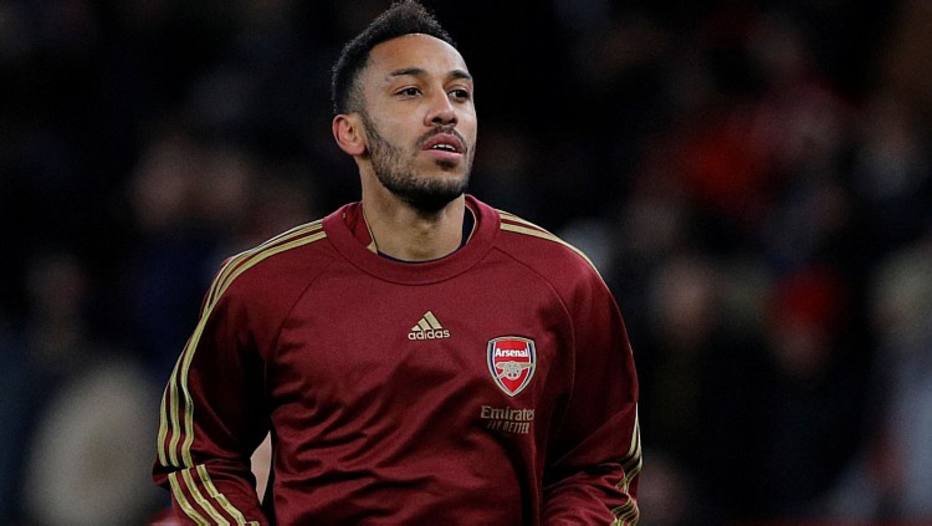Two weeks ago, the attacker Aubameyang missed the selection of Gabon for the African Cup of Nations. A few days earlier, he had received a positive test for the covid-19, as well as his teammates Meyé and Lemina. All three had the same problem: heart injuries. It was also the diagnosis of the left-back Alphonso Davies, who showed signs of mild myocarditis and had to be removed from training at Bayern Munich, Germany.
The cases of Aubameyang and Davies were announced on the same day, but the football world has been facing similar situations since the beginning of the pandemic. the goalkeeper Matheus Cavichioli, do America-MG, was another one of the players who tested positive for the coronavirus and some time later had heart problems. He underwent angioplasty of a partially blocked artery in the heart.
In the case of Cavichioli, the doctors chose not to ensure that the case was due to covid-19. According to América’s press office, the medical team “decided not to enter into the merits of the relationship between heart problems and covid-19” and that “it is still too early scientifically to enter this field”.
Regarding Aubameyang and his teammates, it was Gabon that categorically stated that the players, “newly out of covid-19 could not play in the match, as the medical exams showed heart injuries”. It was the same speech by Bayern Munich coach Julian Nagelsmann, when commenting on the situation of Alphonso Davies.
“In the follow-up exams we do with all athletes who have already been infected with the disease, Davies showed signs of mild myocarditis following his Covid-19 infection. It’s not that dramatic from what the scans indicated, but he’s going to need to be out for the next few weeks because it takes time to recover.”
According to cardiologist Raniere Cabral, who works at Hospital do Coração in Alagoas, infection with covid-19 is something to keep an eye on, especially in the case of athletes and competitive sportsmen (non-amateurs), although they cannot be ignored by recreational athletes, who undergo physical exercise of light to moderate intensity.
“Cardiac involvement in covid-19 can reach 16% of cases and the reasons are several”, explains the specialist. “It is well known that vigorous exercise can lead to sudden death in individuals with undiagnosed underlying diseases, many of which are genetic in origin. Among the acquired pathologies, coronary artery disease and myocarditis, a special focus of this pandemic, are among those that can lead to sudden death.”
HIGHER RISK
According to Cabral, sudden death in sports is related to the intensity of physical exercises, in which athletes and competitive sportsmen are in the group at greater risk of cardiac events compared to those who exercise recreationally, lighter. Because of this, it is necessary that every patient affected by covid-19 undergoes a medical evaluation before returning to activities.
“Pre-participation sports assessment is the main tool for the prevention of sudden death in sports and is recommended for everyone who wants to start or restart a physical exercise program. In the current context of a pandemic caused by a virus that can lead to micro- or macro-structural cardiac changes, this medical evaluation must be carried out before restarting the practice of exercises, regardless of whether it was mild, moderate or severe, but with different depths “, he says.
The evaluation must be carried out after 14 days of the diagnosis of contamination by the coronavirus or at the end of the symptoms. Generally, infected athletes do not bow to the symptoms of the disease. Few episodes are reported of players who were bedridden because of covid. If myocarditis is proven during illness, evaluation should be performed three months after symptoms resolve.
A small study done in Germany and published in the journal Jama Cardiology in July 2020 showed how the coronavirus affects the heart. The researchers studied 100 people, with an average age of 49, who recovered from Covid. Most were asymptomatic or had very mild symptoms. Two months after the diagnosis, the scientists submitted the cured patients to MRI scans and made alarming findings: about 80% of them had heart anomalies and 60% had myocarditis.
Flamengo’s doctor, Fernando Bassan, adds that the main concern of the medical departments is precisely with myocarditis. “Myocarditis is inflammation of the heart muscle. It is not a new or rare disease, typically viral. Because it is viral and covid-19 is also viral, there is a correlation between the two. Myocarditis, then, affects 16 times more patients who had covid-19 than those who did not, according to the US Centers for Disease Control and Prevention. Naturally, in athletes there is a big impact. When we have a detection of myocarditis in a player, it implies a withdrawal of three to six months from their activities.”
The research he refers to was carried out by the US Centers for Disease Control and Prevention (CDC) between March 2020 and January 2021 and involved about 900 hospitals. The agency’s results say that patients with covid-19 were nearly 16 times more likely to demonstrate a case of myocarditis than uninfected patients, with a higher risk for patients under 16 or over 50.
According to the CDC, the number of consultations related to myocarditis in the hospitals surveyed was 42% higher in 2020 than in 2019. Most of the patients investigated were diagnosed for both diseases in the same month, although the origin of this link has not yet been explained. . The US agency also maintains monitoring of vaccines that use mRNA technology.
“Myocarditis and pericarditis have been reported rarely, especially in male adolescents and young adults days after covid-19 vaccination. (…) The CDC recommends that all people over the age of five get the vaccine against covid-19. The known risks of Covid-19 and its possible complications, such as ongoing health problems, hospitalization and even death, greatly outweigh the risk of having a rare adverse effect from vaccination, including the risk of myocarditis and pericarditis.
PROCEDURE IN FOOTBALL
Still according to Bassan, heart problems are a general concern for all Brazilian clubs. At Flamengo, the protocol of care for athletes is to leave after the detection of covid-19 and, when the players return, tests are carried out in order to find out what may have happened during the period of infection of the disease.
“Usually, there are no major symptoms that can justify or identify a cardiac change. Proactive assessment is required. At Flamengo, all athletes who return from a leave of absence undergo a clinical evaluation, which includes carrying out an electrocardiogram and blood test to know, and have in document, if there are any important cardiac changes related to covid-19. If there is no change, the athlete will be allowed to return to training and games.”
Prevented from doing physical activities, João Alvim, 23, from São Paulo, had a heart problem detected when he was diagnosed with covid in December 2020. Before that, he never had anything like that. In addition to him, the closest members of his family also tested positive and, as a precaution, he and his father had to be hospitalized for monitoring of the situation. Since then, João takes some precautions, such as not doing physical activities or anything that can stress the heart muscle.
“I started having a fever and a lot of chest pain, a lot of pain. At night, it increased a lot and became unbearable. I called my wife, it didn’t get better, and I had to go to the hospital. I managed to drive, but the blood test showed an alteration, indicating a sign of a heart attack. I had an emergency catheterization and they ruled out major problems, but then myocarditis was found because of the coronavirus.”
João says that when he makes any major physical effort, he still feels pain in his chest. For 13 months, he takes medication daily, with the follow-up of a cardiologist. And that still doesn’t know when he will be released to return to normal life. He is not a professional player, but he has a path of recreation in sports activities like thousands of people in his city. He works sitting down, producing content, without any physical effort.
DIFFERENT CASES
Concern about heart problems has become a necessity in Brazilian and world football after events that drew attention, such as that of former defender Serginho, who suffered from myocardial hypertrophy and suffered a sudden illness on the field, on October 27, 2004. , when he played for São Caetano in a match against São Paulo.
Already the cases of Christian Eriksen e Sergio Aguero, already during the covid-19 pandemic, did not result from the coronavirus infection, according to Professor Sanjay Sharma, a researcher at St. George’s University, London. He has worked with a number of Premier League clubs and believes the cases are more down to bad luck and further investigation of problems in top-level players. “I can now say that Eriksen’s case had nothing to do with covid or the vaccine or Agüero’s heart scare,” he told the newspaper when Daily Mail, last month.
He claims the situation may have escalated because most players didn’t have enough time to rest as they continued training during the lockdown period, already thinking about when the leagues could return. According to Sharma, when big names are involved, people tend to believe the problems are getting worse.
“Eriksen’s well-publicized sudden cardiac arrest – the most important I have ever witnessed – certainly opened the world’s eyes to sudden cardiac arrest in the sport. Then Agüero had a heart scare during a televised game”, he emphasized. “When it happens to someone high-profile, it gets the attention of the entire nation. It doesn’t come to light that a young man can just drop dead until a football player has a scare and that’s when society starts to notice.”
–


